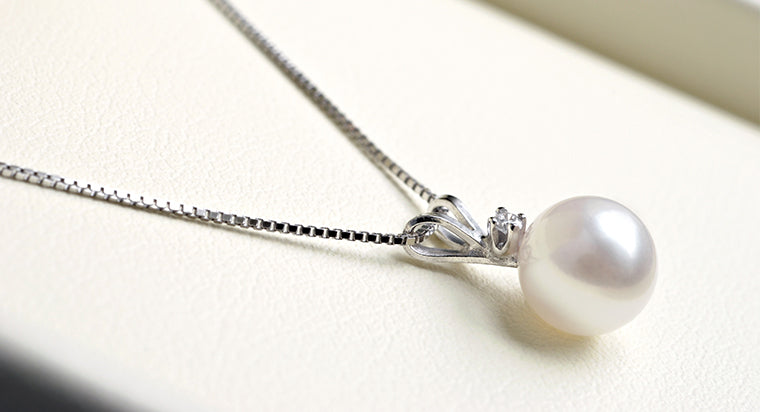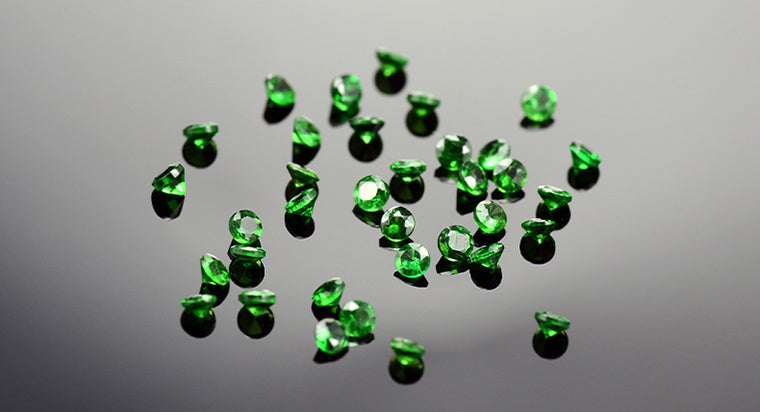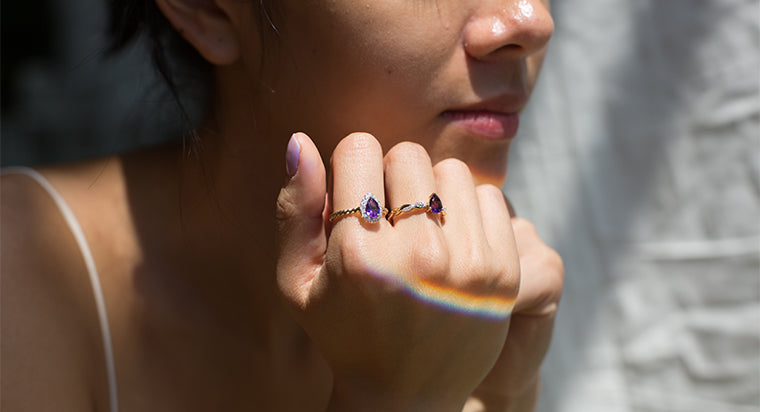Aquamarine Color
Although it is popular, aquamarine has some imitators. In particular, the signature blue color is duplicated in Swiss Blue Topaz, blue tourmaline, and light-colored sapphire. However, this gemstone has been popular since antiquity. Ancient Greeks associated it with water, and the name means seawater in Latin. Let's take a look at the color of this lovely stone.
TABLE OF CONTENTS
What is Aquamarine, Anyway?
Aquamarine is Made of:
Basically, it is the blue variety of the mineral beryl. Chemically, beryl is a beryllium aluminum silicate, and one of the major sources of beryllium. In order for beryl to acquire the signature blue color and become aquamarine, it requires the addition of iron to the crystal during formation. This goes for both natural and lab aquamarine.
Otherwise, the beryl mineral family by itself is colorless. The addition of elements other than iron can produce different colors: most famously, chromium and vanadium turn beryl into the famous emerald.
Where Aquamarine can be Found:
Although it is exclusively blue, there's a range of shades within the blue family from a pale sky blue to blue-green. As with many other minerals, the color can be lighter or darker depending on the stone. It's a relatively rare mineral, but can be found in a variety of places worldwide. Most material is close to the surface and can be mined in alluvial deposits or shallow surface mines.
Brazil has the largest mines but also occurs in Southeast Asia (especially Myanmar), India, Pakistan, China, Nigeria, parts of the US, Russia, and central Africa. The best quality material is mostly found in Pakistan and Brazil. People born in March have an aquamarine gemstone.
Aquamarine Color & Value
Like most stones, aquamarine color helps determine its value. Most people think of aquamarine as a pure blue, very much like the sky on a cloudless summer day. Greeks and Romans also associated this stone with the color of the sea. Such an association seems especially important, given that seawater can be either pure blue or blue-green depending on its depth and purity.
When determining the value, there are three main considerations: the shade and intensity of the blue color, and its clarity. Ideally, it's a pure, intense blue without any green tinge. Especially in larger stones, the color can be fairly intense, and it's harder to get intensity with smaller pieces of raw aquamarine. Less desirable, ironically, is what so many people call “aquamarine blue”: a lovely greenish-blue that's closer to teal. Lighter colored stones are also less valuable.
Aquamarine Clarity & Value
Somewhat less important for aquamarine value is its clarity rating. Most material that's faceted and set into aquamarine jewelry is what the trade calls “eye clean.” Essentially, this means that the faceted gemstone appears to not have any flaws, called inclusions when viewed by the casual observer.
Inclusions come in a variety of forms. Most crystals have the ability to “swallow” another crystal while growing. A common aquamarine inclusion is a crack or fissure, usually a cause of stress during the crystal’s formation. Perhaps most common, however, is silk. This is a series of lines, usually liquid-filled cracks. If there’s enough silk, a gem cutter can fashion a lovely “cats-eye” cabochon with this piece of rough. These would be stunning as a rose gold aquamarine ring.

Aquamarine Clarity Grading
When describing clarity, jewelers often use a scale that goes from AAAA to B. AAAA stones are the finest quality, with inclusions barely visible even under magnification. Natural AAAA aqua stones are extremely rare and expensive. Most reputable jewelers will use AAA quality natural gems that have been heat treated to enhance the color and clarity in a permanent and safe way. AA and A graded aquamarine make up a majority of the jewelry market. B grade stones tend to get made into craft beads.
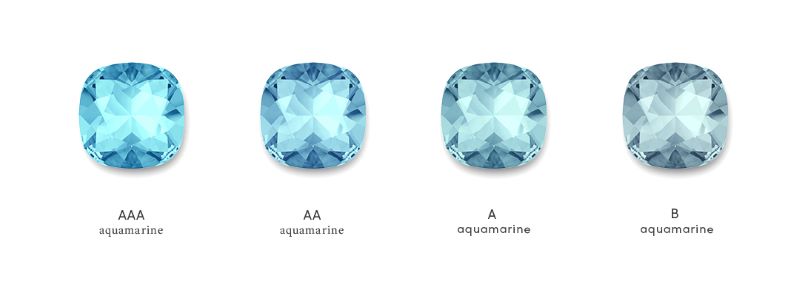
Improving Gemstone Color
There are basically two ways to improve the quality of any gemstone before it's made into an aquamarine ring white gold:
- First, it can be cut in such a way that inclusions are absent from the finished aquamarine gemstone. Options include a “step cut,” such as the famed emerald cut. These cuts have long, clean lines, and when done right can enhance the color. Or, a “brilliant cut” can be used. The aim of brilliant cuts is to give the finished gemstone a nice sparkle. Round shapes are the most famous brilliant cut.
- Secondly, rough stones can be heat treated to improve both clarity and color. In particular, heat treating these stones can remove any green tinge and make the blue darker. The rich, pure blue color makes these stones perfect for an aquamarine and diamond ring. Likewise, increasing the clarity rating also boosts the price of the treated gem, making more of it suitable for faceting.
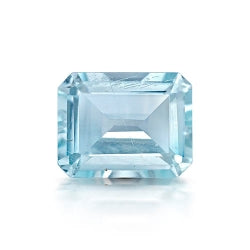
With Clarity Aquamarine Gemstones
At With Clarity, we use AAA quality gemstones, much of which has been heated. This heating is a permanent and natural treatment. AAA quality stones are eye clean and provide a better value for money than AAAA stones without compromising on appearance. If you would like help choosing the perfect aquamarine wedding rings, give us a call.
How To Contact Us
Contact us by phone at 1(844)-234-6463 or email at service@withclarity.com. Our Live Chat is available during business hours Monday - Friday 10AM - 6PM ET.
FAQs
What does the aquamarine symbolize?
What birthstone is aquamarine?
What color is aquamarine?
How much is aquamarine worth?

